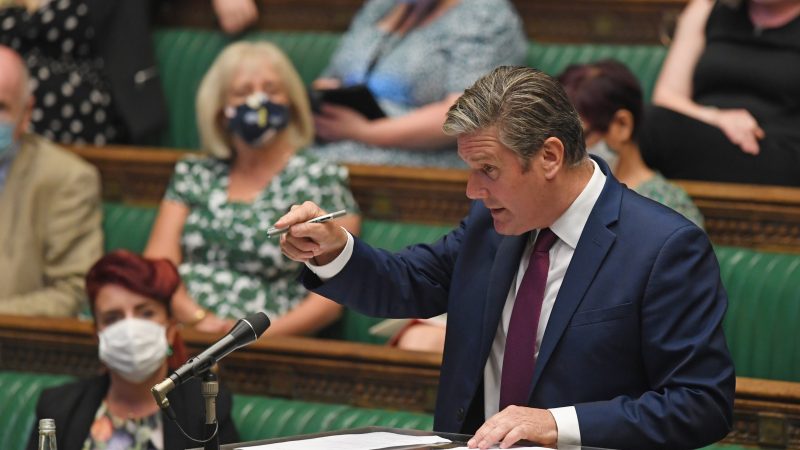
Keir Starmer would be forgiven for heading down to Brighton for Labour conference this weekend feeling slightly more optimistic than he may have felt for the last 18 months. The furore over National Insurance and the Conservatives’ drop in opinion polls shows that Boris Johnson isn’t invincible.
Despite the cause for optimism, however, there are still big challenges for Labour to overcome before the next election – the main one being that the party is struggling to find a distinctively ‘Labour’ vision for the country that appeals to target voters in the North and Midlands.
This struggle is particularly obvious when it comes to the so-called ‘levelling up’ agenda. First coined by the Conservatives in the 1970s, since the last general election the promise to level up left behind parts of the country has become synonymous with Boris Johnson’s domestic programme.
Despite the lack of clarity from the government over what levelling up is, the project resonates strongly with the public. Seven in ten people polled by Opinium last month had heard of the levelling up agenda, and half had at least a vague idea of what it means – surprising considering that ministers are still themselves working out what it should mean ahead of the white paper’s publication this autumn. Perhaps they should ask the public.
Levelling up’s cut-through is a problem for Labour. Does the party go along with it and develop its distinct levelling up agenda? Or does it avoid using the phrase, while trying to present voters with its own progressive alternative? Starmer has apparently opted for the latter option – in Hansard, I found just two references to him using the phrase since he became opposition leader.
While it is understandable that the Labour leader is reluctant to align himself with something so closely associated with his political opponent, the fact remains that the UK is one of the most geographically divided advanced economies in the world. Almost 20% of adults in Burnley have no formal qualifications, compared to just 3% in Exeter and Brighton. Starmer needs to show the public that he has a plan for addressing these inequalities.
So, what is Labour’s alternative to levelling up? The answer should be obvious: further devolution within England. Several metro mayors in some of our biggest city-regions have given Labour – now out of government for more than a decade – an opportunity to show voters what the party looks like in office, not just in opposition.
From Steve Rotheram’s work on apprenticeships and skills, to Andy Burnham and Tracy Brabin’s plans to bring their bus networks under public management, Labour mayors are showing party HQ what an alternative to the levelling up agenda should look like – and they are popular in doing so.
Polling commissioned by Centre for Cities ahead of May’s mayoral elections found that eight in ten people – an overwhelming majority – backed devolving more power over areas such as housing, transport, skills and business support away from Whitehall and to local leaders. And as the Conservatives have cooled on the idea of further radical change to the way English local government works and is funded, they have left a big gap for the Labour Party to step into.
However, apart from establishing the London mayoralty and a failed attempt at a North East Assembly under Tony Blair, Labour has a somewhat ambiguous relationship towards devolution in England. The creation of metro mayors in Greater Manchester, Liverpool City Region, West of England and other city regions was George Osborne’s project and successive Labour leaders have said little on the subject. Indeed, few of the fringe events at this year’s party conference look like they will address the issue in any detail.
This ambiguity is wrong. The public knows what Labour should be shouting about: that Whitehall is not best placed to say what is best for local communities and that many decisions should be made closer to home. Labour should embrace the public mood on this and promise radical devolution in England, with power and funding shifting closer to people and communities – allowing them to make the changes that they want to see in their areas.




More from LabourList
Letters to the Editor – week ending 1 March 2026
‘I spent years telling workers the law couldn’t help them – that has changed’
Josh Simons resigns as Cabinet Office minister amid investigation